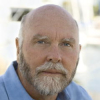Craig Venter

Craig Venter
John Craig Venteris an American biotechnologist, biochemist, geneticist, and entrepreneur. He is known for being one of the first to sequence the human genome and the first to transfect a cell with a synthetic genome. Venter founded Celera Genomics, The Institute for Genomic Researchand the J. Craig Venter Institute, and is now CEO of Human Longevity Inc. He was listed on Time magazine's 2007 and 2008 Time 100 list of the most influential people in the world. In 2010, the...
NationalityAmerican
ProfessionScientist
Date of Birth14 October 1946
CountryUnited States of America
Craig Venter quotes about
We said that once we had finished sequencing the genome we would make it available to the scientific community for free, ... And we will be doing that on Monday morning at 10am.
One important part of scientific training is that scientists learn the boundaries, the safety issues, how to properly deal with and dispose of chemicals and reagents.
People want to protect the territory that they have, and they're very threatened by change. That's not true for all of scientists, but you know, fortunately, the scientific community moves forward in a conservative fashion.
One of the fundamental discoveries I made about myself - early enough to make use of it - was that I am driven to seize life and to understand it. The motor that pushes me is propelled by more than scientific curiosity.
the most important scientific effort that humankind has ever mounted.
The photosynthesis we see with plants is not very efficient. Algaes are more efficient.
When you do cross-breeding of plants, you're doing this blind experiment where you're just mixing DNA of different types of cells and just seeing what comes out of it.
When most people talk about biofuels, they talk about using oils or grease from plants.
The environment has fallen to the wayside in politics.
Most drugs work on only about a third of the population, they do no damage to another third, and the final third can have negative consequences.
Privacy with medical information is a fallacy. If everyone's information is out there, it's part of the collective.
Any virus that's been sequenced today - that genome can be made.
It is my belief that the basic knowledge that we're providing to the world will have a profound impact on the human condition and the treatments for disease and our view of our place on the biological continuum.
We have learned nothing from the genome.